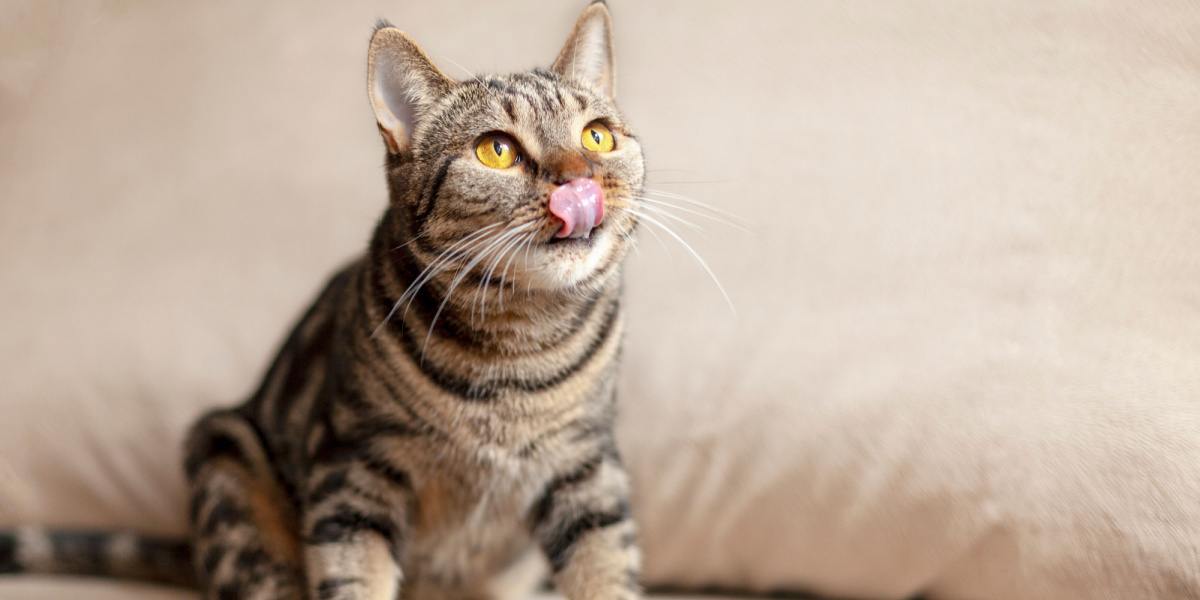
Do you wonder why your cat smacks their lips and if there is anything you need to do about it? If so, you have come to the right place. Read this vet-written guide to find out exactly what this strange cat behavior means.
Cats smack their lips for many reasons, but the most common is to clean themselves after drinking or eating. Lip smacking in cats can be completely harmless or caused by a serious medical issue. If your cat starts smacking their lips very suddenly or frequently, schedule an appointment with your veterinarian as soon as possible.Key Takeaways
What Does It Mean When Cats Smack Their Lips?
Let’s explore 12 possible reasons why you might catch your cat smacking their lips.
1. Licking Food From Their Face
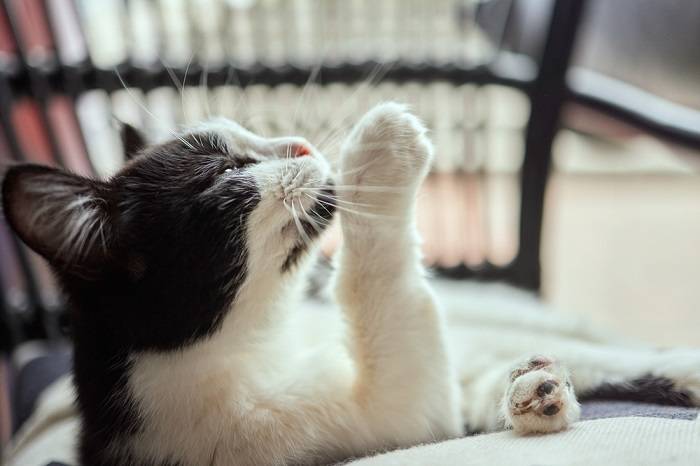
It’s normal for cats to smack their lips after eating as they groom themselves clean.
Cats can be quite messy eaters! They often flick food around their lips and the fur surrounding their faces. Cats are also very clean animals, so if they do this, they like to groom themselves. You will probably see your cat doing this after every meal.
They will lick and rub their paws over the fur around their faces then start lip licking or lick their paws clean. If your cat is only lip smacking after meal times this is part of their normal grooming ritual and absolutely nothing to worry about.
Also Read: Why Do Cats Lick And Clean Themselves?
2. Stress Or Anxiety
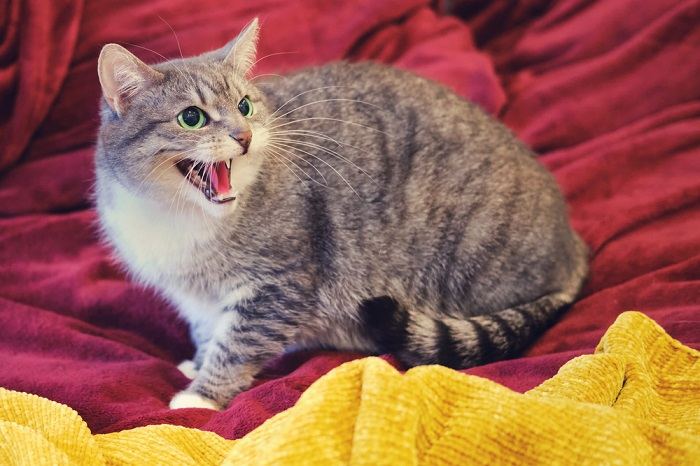
Cats might smack their lips if they’re feeling nervous or stressed, as a means of trying to calm themselves.
Cats often lip smack when they are anxious or stressed. Cats sometimes try to relieve their anxiety by doing something else such as lip smacking or over-grooming. This is called displacement behavior. Cats do this to try and help themselves calm down.
If they are feeling threatened, you might see them hissing, then lip smacking. Your cat might do this when you put them in their cat carrier for example. They know from past experiences that the cat carrier means either a trip to the vet or the cattery.
When your cat is stressed, they can produce more saliva in their mouth. This means that they will smack their lips and swallow more to get rid of the excess saliva. Stress may also make your cat experience nausea, which in turn produces more saliva and will make your cat smack their lips more.
Also Read: Cat Separation Anxiety: Causes, Symptoms, And Treatment
3. Strange Tastes
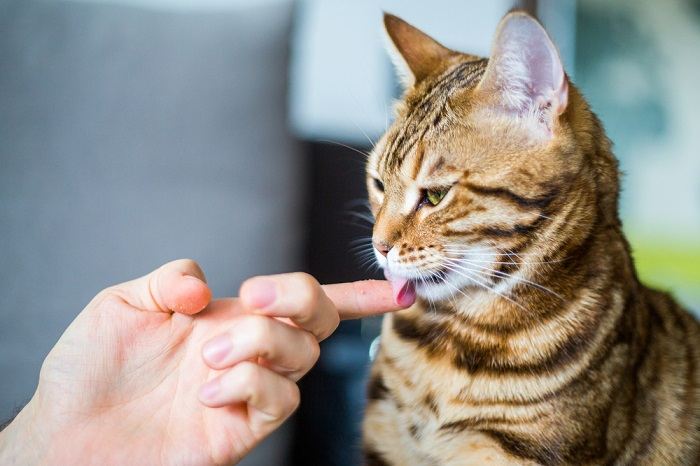
A bad taste can make cats smack their lips to try to get the yucky taste out of their mouths.
If your cat licks or swallows something that tastes funny to them, or that they dislike, they will start smacking their lips and salivate more than usual. Cats are inquisitive creatures and they often lick things like the floor or a surface with cleaning products on it that tastes strange.
This will definitely cause lip smacking behavior as they try to remove the taste from their mouths. If you spot them doing this suddenly, and they seem unsettled it’s best to get checked out by your veterinarian as you need to rule out toxins or poison.
Also Read: Do Cats Have A Sense Of Taste?
4. Oral Infections And Oral Ulcers
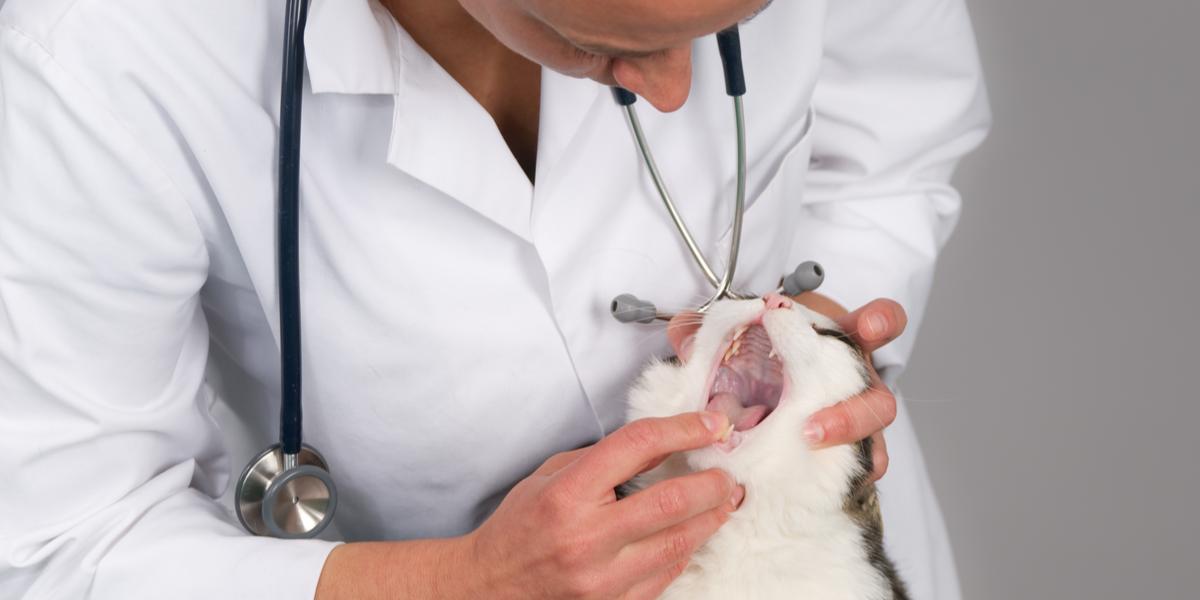
Pain and discomfort in the mouth can cause many symptoms, including lip smacking and drooling.
If your cat has any sort of infection in their mouth, this can cause them to smack their lips excessively. This is usually because their lips and tongue will be inflamed and sore and they will be in pain. Ulcers can cause mouth pain and hypersalivation as well, which both lead to lip smacking.
Ulcers in the mouth can develop from local or systemic infections, including some viral infections that are unique to cats. They can also develop ulcers from ingesting caustic chemical like cleaning products.
Also Read: Mouth Cancer In Cats: Causes, Symptoms & Treatment
5. Dental Disease
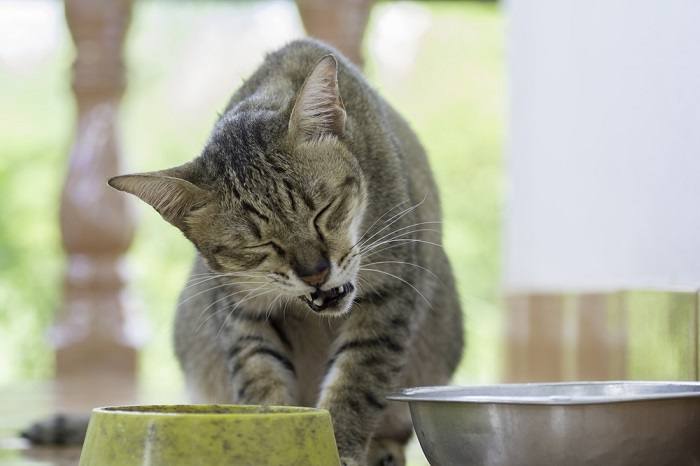
As with oral issues, dental disease can be painful or uncomfortable, leading to lip smacking.
If your cat has issues with their teeth they will often lip smack a lot. Dental disease causes inflammation and pain, and this causes excessive salivation. A buildup of plaque occurs, which turns into tartar on the teeth. This makes a perfect environment for bacteria to thrive.
Also Read: The Complete Guide To Dental Cleaning For Cats
6. Nausea
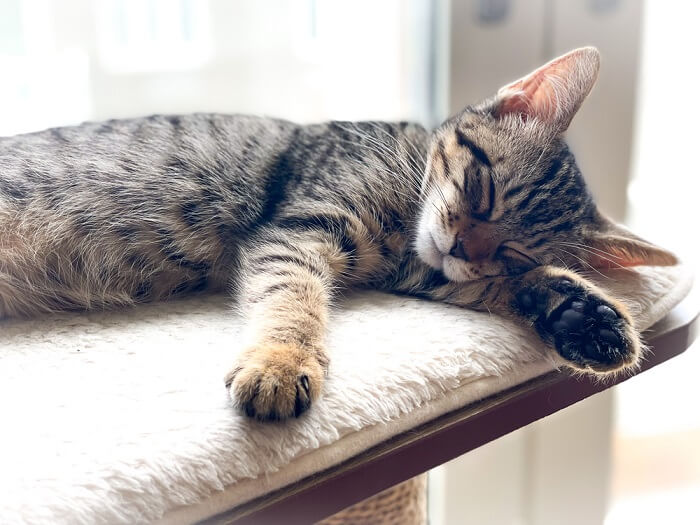
Nausea can cause cats to drool and smack their lips, and they might also vomit.
If your cat has an upset stomach, they might be lip smacking. If they are about to vomit, they will produce more saliva. If they are unwell, they might also have a fever and loss of appetite and you might notice them loosing weight.
Also Read: What Can You Give A Cat For An Upset Stomach?
7. Injury To The Mouth
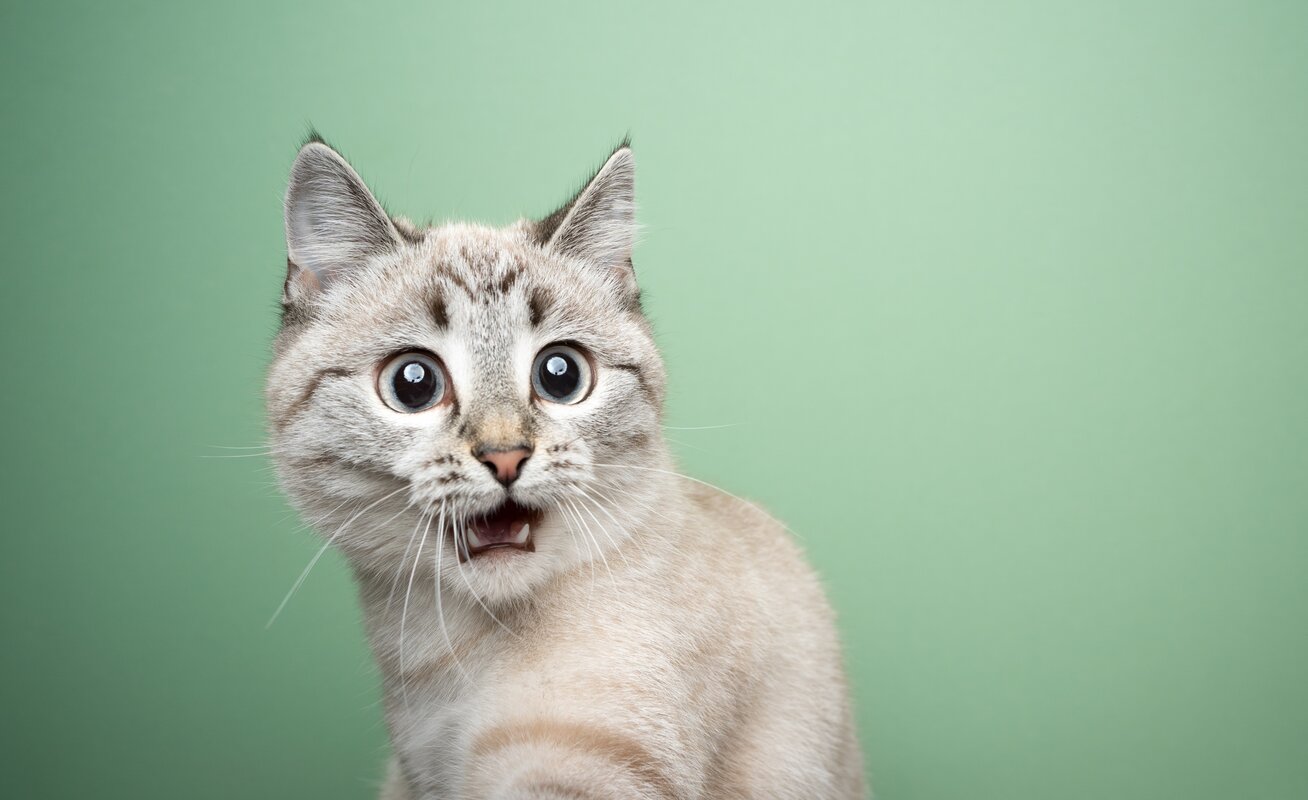
Any injury to your cat’s mouth, including insect bites and stings, can cause them to smack their lips.
Wounds in or around the mouth can cause cats to lip smack, especially if they are in pain. They might also be trying to clean the area.
If your cat has been injured around their face it might cause them to lip smack due to the pain or they might be hypersalivating, which would cause them to lip smack. Bites and stings from things like bees or spiders will also cause cats to lip smack.
Also Read: Why Do Cats Bite Each Other’s Necks?
8. Foreign Body
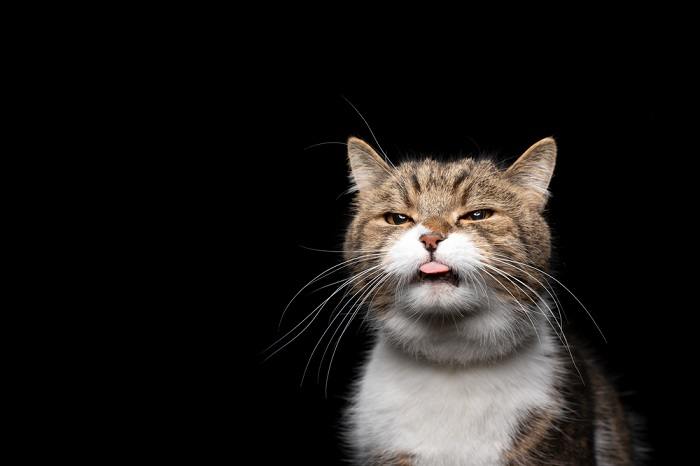
If cats chew and swallow a non-food item, it can become stuck in the teeth or throat, causing cats to lip smack to dislodge it.
Another cause of lip smacking is if there are bits of debris or foreign material in their mouth, such as a piece of a stick or bones or some string. This will cause hypersalivation and increased lip smacking.
9. Ptyalism (Hypersalivation)
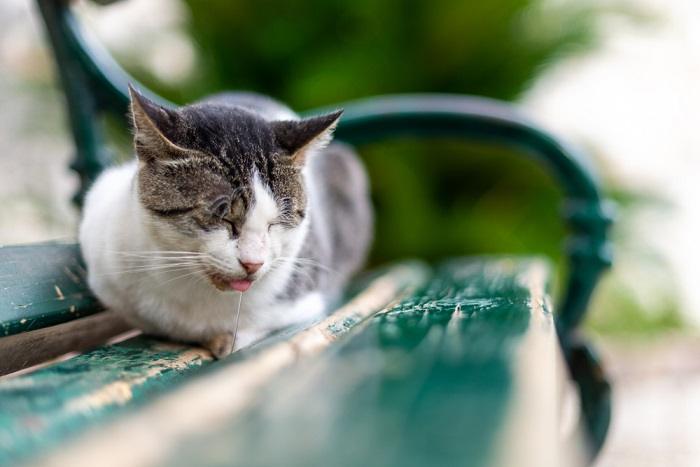
Drooling due to excessive saliva can be caused my many things, so visit the vet right away if you see this.
Ptyalism or hypersalivation is simply the production of excess saliva. It can be caused by many different things, and it’s a symptom seen with many different diseases. Excess saliva will always cause a cat to lip smack as the saliva dribbles out of their mouth.
10. Dry Mouth (Xerostomia)
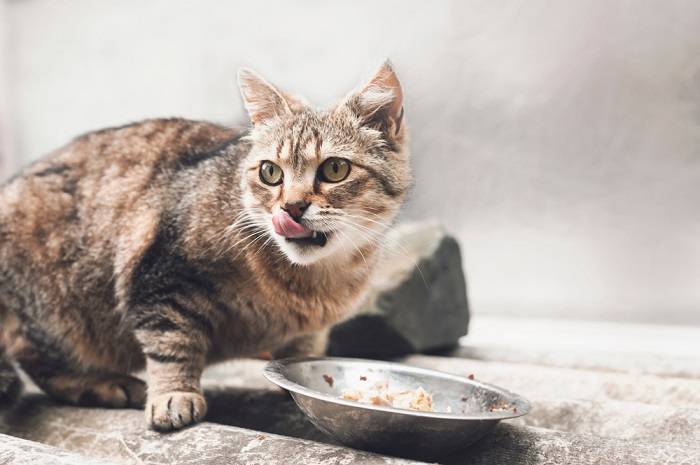
Insufficient saliva production, which can be caused by dehydration or disease, can make the mouth feel dry and lead to lip smacking.
The opposite of hypersalivation can also cause lip smacking too. Your cat might start lip smacking or pushing their tongue out to attempt to wet their lips. Your cat might be suffering from dehydration. A chronically dry mouth may be the result of systemic disease.
11. Seizures
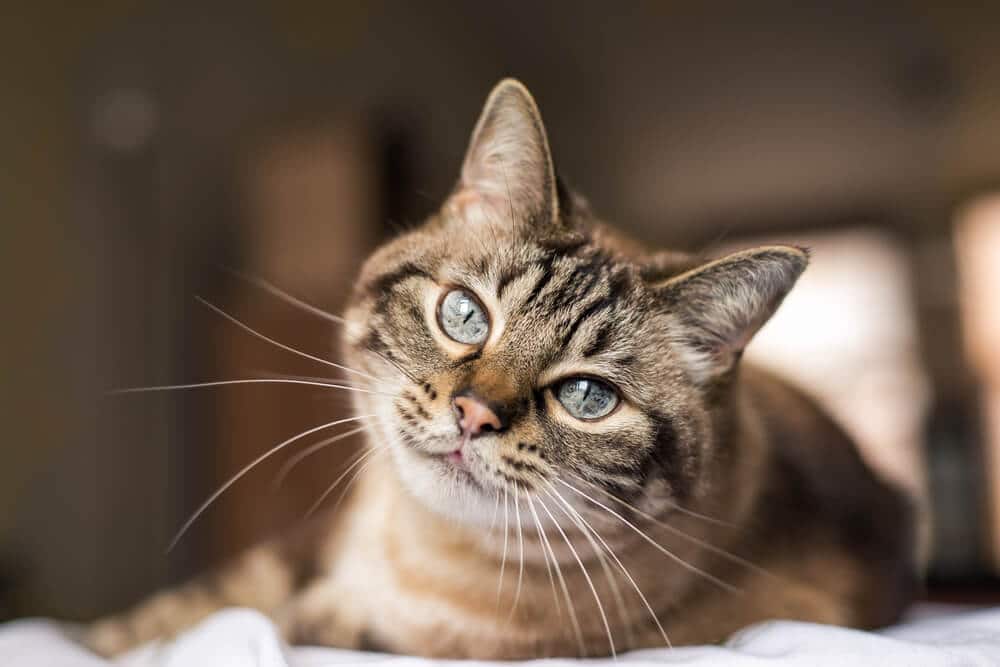
Certain types of seizures can make cats snap their teeth or smack their lips.
Some cats that experience focal seizures will smack their lips during the seizure. They can also snap or chomp at the air and scratch their face excessively. It can be alarming to see this sort of behavior.
12. Poison/Toxins
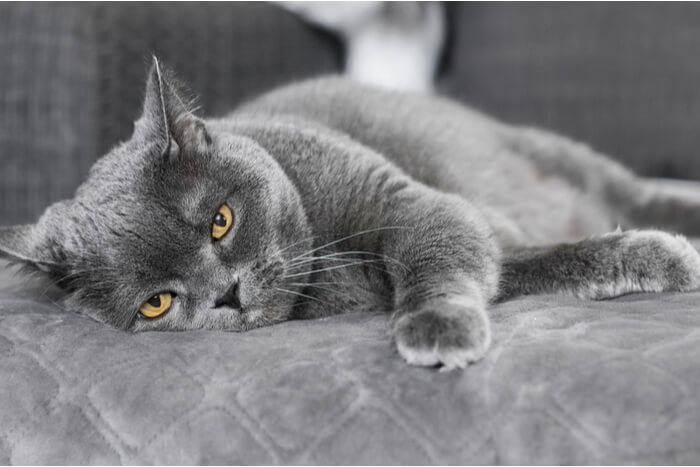
Common signs of poisoning include lip smacking, drooling, tremors, seizures, vomiting, and diarrhea.
Cats by nature are indeed very curious, and they often lick things they shouldn’t, or ingest something toxic by grooming substances off their fur. Because they have a small surface area to volume ratio, cats can get very sick very quickly.
One of the signs of poisoning is lip smacking and hypersalivation. Other signs of poisoning to watch out for along with lip smacking are tremors, vomiting and diarrhea, seizures, breathing difficulty and collapse.
If you are at all worried about any of the behaviors mentioned above, make an appointment with your veterinarian urgently.
Also Read: Drug Poisoning In Cats: Causes, Symptoms, & Treatment
How Do I Get My Cat To Stop Lip-Smacking?
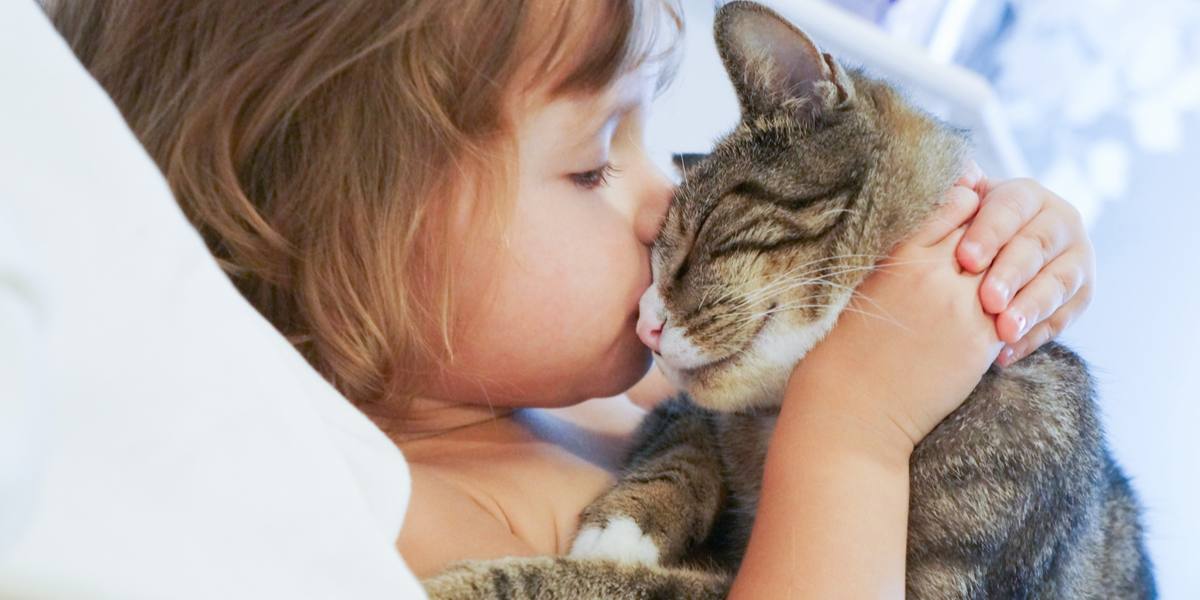
Some cats find interactions with children stressful, especially if they are restrained or otherwise unable to escape the situation.
The first thing to do is to establish the underlying cause for the lip smacking. Once you have determined this, you can start to help your cat if necessary.
Observe your cat to see if there are any patterns emerging. If, for example, it is only happening after meals then your cat is likely to be grooming themselves and removing morsels of food. If it is only when they are in a stressful situation such as a visit to the vet, then it might be that they have a nervous reaction when they are anxious.
If your cat is put in a situation that they find stressful, and they lip smack then, it could be a displacement reaction. If this is the case you can try to remove them from the situation, or remove the stressor if it is something in their environment. If they are an anxious cat in general, you could try to add enrichment activities to distract them and keep them occupied.
If you are still unsure, or worried there is a health concern, book an appointment with your veterinarian. They will need a full history of the problem, including when the lip smacking started, how long it has been going on for, if it started suddenly or gradually, and if it is constant or only at certain times of the day.
Your vet will examine your cat’s face and mouth area, including inside of their mouth and to the back of their throat. They will weigh your cat to see if they have lost any weight and give them an overall health check, too. Your vet is able to figure out if it is a behavioral habit or a medical problem, so you will know if they need help.
Lip Smacking: Final Thoughts
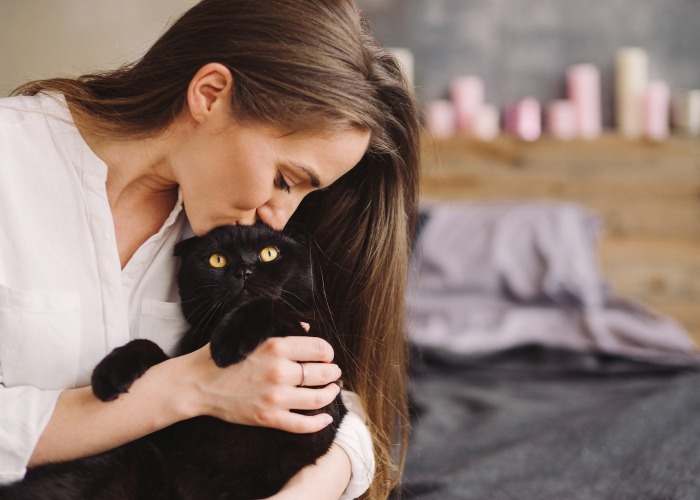
It’s important to get a health check any time your cat’s behavior varies from their norm.
Cats lip smack for many different reasons. If they are doing it occasionally and there is no pattern emerging, it is likely nothing to worry about. If you notice sudden change or if your cat starts lip smacking excessively, it can be an indication of medical issues, so it’s best to book an appointment with your veterinarian. They will be able to do a full physical exam and get you some answers.
Also Read: Do Cats Love Their Owners?
Frequently Asked Questions
Why do cats smack their lips while sleeping?
Lip smacking when fast asleep is usually due to your cat having a dream. They can twitch and jerk about when in a stage of sleep called REM sleep, which stands for rapid eye movement. They often act out experiences that have occurred during the day, so if you fed your cat their favorite meal they might be reliving this in their dream.
Why does my cat lick his lips when he looks at me?
Don't worry, this does not mean your cat is eyeing you up for their next meal! If your cat smacks their lips when they look at you it depends what you are doing at that moment. If you are preparing their food, they might be smacking their lips in anticipation of their meal as the sight of it might cause them to salivate.
If you are doing something that makes them anxious, for example getting their cat box out for a trip to the vets, they could be expressing signs of anxiety. They also might be experiencing a medical problem. If you are worried, consult your veterinarian.
Do cats lick their lips when stressed?
Cats certainly can lick their lips when they are stressed. They also lick them for many other reasons so don't automatically assume you have a stressed out cat if you see this behavior. When cats are stressed, they can lip smack as a sign of anxiety or nervousness.
They might be using lip smacking as displacement behavior. The source of the stress may also be making them salivate more, which in turn would make them lip smack, too.
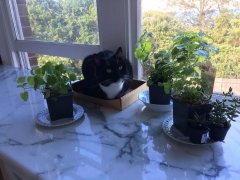
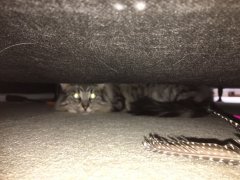
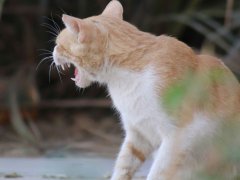
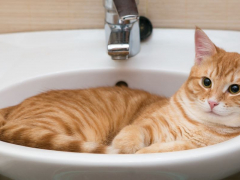
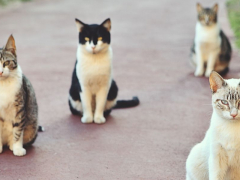



Why would this be considered a problem?
Lip-smacking can sometimes indicate nausea, dental issues, or an underlying medical condition in cats. If it happens frequently or alongside other symptoms like drooling, vomiting, or changes in appetite, it’s worth consulting a vet.